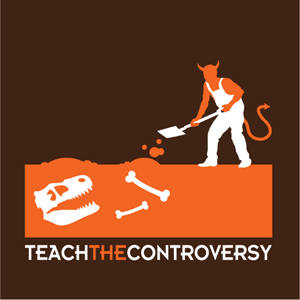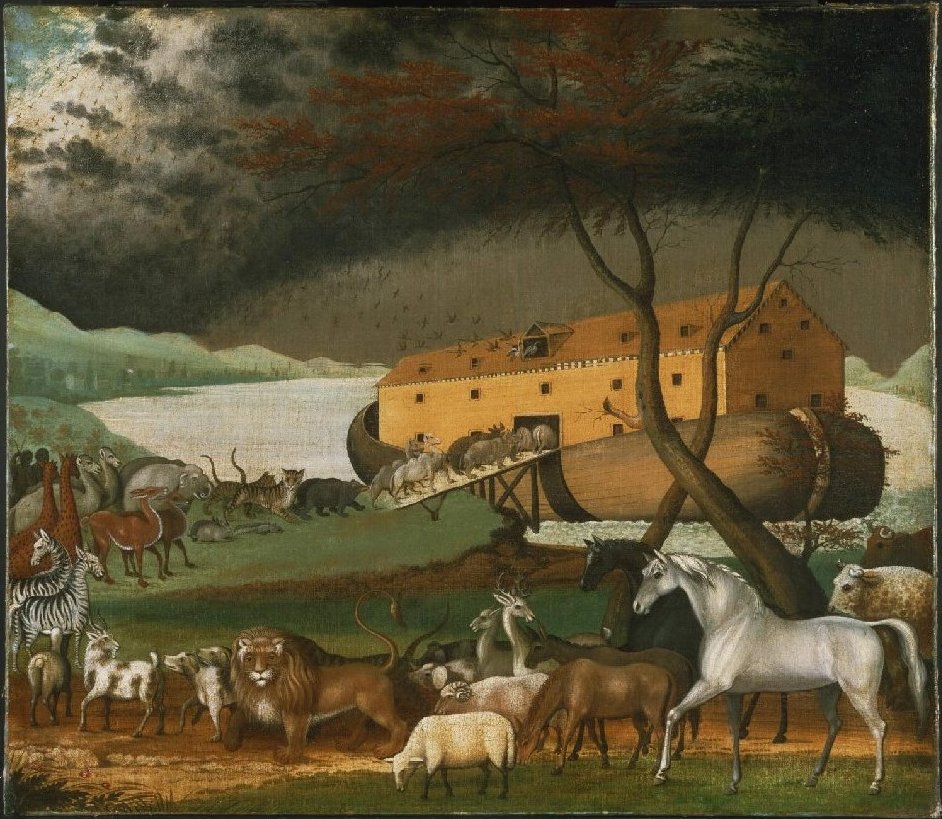Disclaimer: This post presents more opinion than a typical Thought and Awe post, and should be taken with a larger grain of salt. Accordingly, there are no peer-reviewed citations at bottom.
One of the most exasperating battlegrounds in America’s perennial “culture wars” is the high school science classroom. Every few years, some state legislature or school board decides that science education would be much better if it left out the stuff that makes them uncomfortable. Usually, this involves pushing non-scientific ideas such as creationism, intelligent design, or climate change denial into the science classroom, and passing them off as if they are part of the “scientific debate.”
Just a Theory
For the last two decades, legislative efforts to degrade science education have marched under the Discovery Institute’s battlecry “Teach the Controversy!” This campaign seeks to drum up the appearance of scientific debate by presenting the trappings of one – a few credentialed dissenters, conferences, maybe some remaining difficulties of the theory in question.

Source (from a satirical t-shirt company, not the Discovery Institute!)
Without fail, the real debate is political, religious or social, not scientific. That is to say, there is a debate, but it is based on values, beliefs or feelings that are justified by an approach to knowledge other than the scientific method. Science is a way to approach the truth in which physical evidence is used to validate predictions about the physical world – it is not a body of knowledge, but an epistemological process. To raise a scientific debate about an established theory, one must falsify that theory by showing that a prediction that follows from it does not hold. The climate change or intelligent design “controversies” do not meet this bar.
The attempt to put political, religious and scientific ideas on an equivalent ground and “debate” them has percolated through the culture at large. It has led to embarrassing results like the Bill Nye/Ken Ham evolution debate, in which religious firebrand Ken Ham pretended that creationism is an evidence-based worldview.
As disingenuous and cynical as this “Teach the Controversy” campaign is, there are more ominous clouds on the horizon. A bill in the Ohio legislature aims to restrict science educators from teaching “scientific process,” instead mandating that they stick to “scientific facts.” Instead of trying to sneak un-scientific debates over the border into the science classroom through deception, this new tactic seeks to erase that border entirely. The scientific method and process is the beating heart of science, and without it scientific facts have no more authority than political opinion. A science class without discussion of the scientific process is no science class at all.
The Controversy
Leaving the scientific method out of science education, and simply teaching science as a collection of facts, leaves students without the ability to critically question new findings and contextualize them as part of the ongoing scientific process. Acting like there is no epistemological difference between Natural Selection and Creationism will create citizens incapable of using the right criteria to judge scientific information.There are certainly social, political and religious implications to Natural Selection. But trying to judge the scientific facts behind the theory from these perspective is like trying to judge the character development in a geometry proof. Without the ability to evaluate the scientific weight of one argument over another, people are left vulnerable to snake-oil salesmen like Ken Ham or Dr. Oz.
To defend scientific literacy in this country, the scientific and educational communities should agree to teach the controversy, on the principle that sunlight is the best disinfectant. The controversy we must teach, however, is not the “scientific debate” about these theories. There is none. The controversy is whether we accept the scientific method as an approach to discovering truth about the physical world, worth teaching in its own classroom and distinct from other approaches in its use of physical evidence to validate predictions. This does not necessarily mean abandoning religious or political convictions, as many have found satisfying worldviews that incorporate both. But it does mean respecting science on its own terms. Denying Natural Selection because of the Bible misses the point in the same way as pointing out the physical impossibilities of the resurrection of Christ.
A discussion about epistemology – why we accept certain ideas to be true – would do us good, in the science classroom and beyond. Most people (including scientists) use many different approaches to truth – aesthetic resonance, divine revelation, tribal affiliations, scientific method – to arrive at our beliefs, but many of us never get a chance to examine these approaches.
Although many science classes include a cursory unit on the scientific method, this should be expanded and enriched. In an age where science is growing more culturally and methodologically diverse, there is plenty of room for discussion about what constitutes solid evidence to falsify or validate a scientific theory. Newer statistics-heavy observational methods can be problematic, and our culture has done an astonishingly bad job of digesting their conclusions. A solid understanding of how science evaluates evidence would be a great benefit to any person living in our current scientific world.

An early and still-popular argument against Evolution by Natural Selection
History classes could assist by putting science itself in its historical and social context. Philosophers of “Science, Technology and Society” such as Bruno Latour and Thomas Kuhn have shown us how the scientific method is conducted by biased humans (with perspectives, even!) enmeshed in social structures. Discussion of the historical successes (like heliocentrism) and failures (like phrenology) of scientific “epistemic cultures,” and the reaction of the society at large, would help students make sense of the debates they read in the news.
In the last 400 or so years*, the scientific method has completely reshaped our understanding of the world, the universe, and ourselves, whether you are religious or not. The attempt to create an epistemological equivalency between scientific and political debate, whether by presenting political arguments as scientific or simply banning the teaching of the scientific process, threatens to leave the next generation woefully unprepared for a world shaped by science. There are many ways that people arrive at their beliefs, and you don’t have to be convinced by the overwhelming scientific evidence for Evolution by Natural Selection or Climate Change. But saying that there is a scientific debate does not make it so.
*I started counting at Francis Bacon there, but you could trace scientific roots much further back than that.

